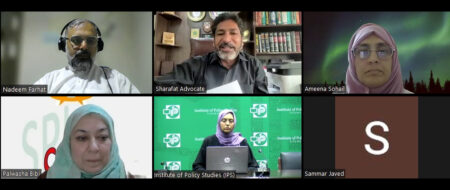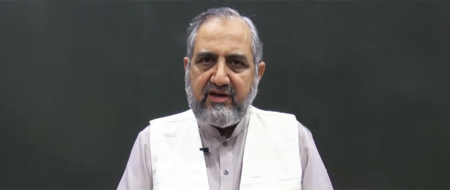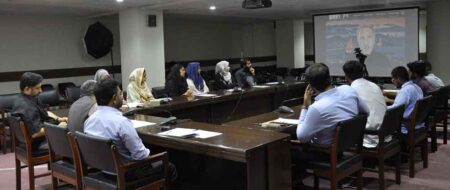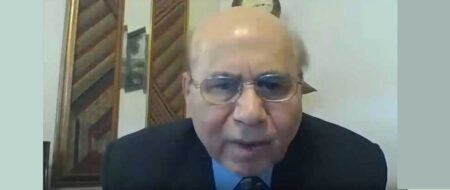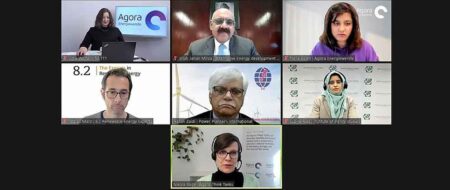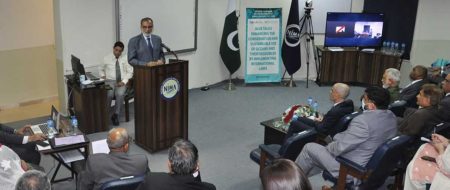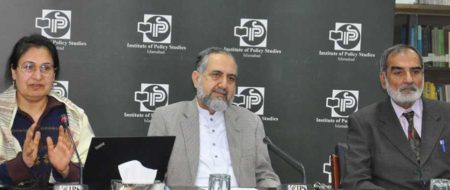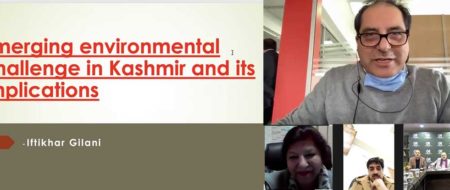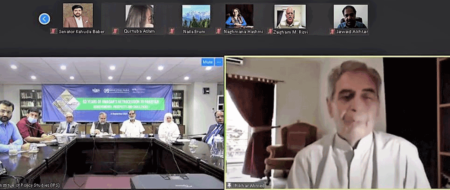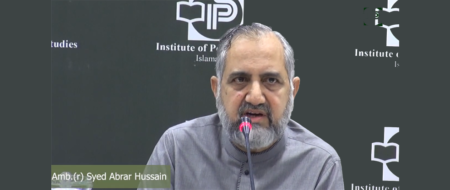‘Covid-19 – Pakistan’s Economic Outlook and Way Forward’ (9th Session)
Govt advised to infuse more money to boost spending, jumpstart economy
Countries around the world have initiated various measures
to mitigate the effects of the Covid-19 pandemic, and nothing could stop them
from printing more money for the purpose. Pakistan should also print more money
and distribute it through nationwide relief programs, such as ‘Ehsaas’, to
boost spending and jumpstarting the economy, an eminent economist and former
federal secretary finance has advised.
The views were shared at a webinar titled ‘Pakistan’s
Economic Outlook and Way Forward’, which was organized by Institute of Policy
Studies (IPS) on May 5, 2020 as part of its webinar series ‘Covid-19: Global
Challenges, National Response’, by Dr. Waqar Masood Khan, former secretary
finance and member of IPS National Academic Council.
It was chaired by Executive President IPS Khalid Rahman
while the participants included Syed Muhammad Ali, senior research fellow IPS,
Mirza Hamid Hasan, former federal secretary water and power, Air Commodore (r)
Khalid Iqbal, and Zaheeruddin Dar, executive consultant and external expert,
Center for the Promotion of Imports from Developing Countries.
Dr. Masood said the economy needs cash infusion instead of
austerity and this can be done by increasing money supply in the system. In
this regard he suggested raising the amount being paid under the Ehsaas
Emergency Cash program from Rs12,000 to Rs60,000 split into two tranches.
He said the savings from less dollar payments due to
declining global oil prices will compensate for the reduction in remittances by
overseas Pakistanis and drop in export earnings. These will help spur the
economy while the country’s vital dollar reserves will not decline. The
government needs to think at the macro level, he added.
He was of the view that using inflation targeting and
interest rates for growth is impractical economics. Regarding the upcoming
budget, he said: “It will be a budget put together in a state of war. It will
be just a formality so people should not hold any high expectations.”
He did not see the next fiscal year as being any better, if
not worse, than the current one which is about to conclude. This is because of
the economy which is in a nosedive along with the looming risk of food security
posed by locust attacks.
Muhammad Ali said there are four things that are important
at this point in time; food, fuel, cash and healthcare. These are critical
factors for the country in its measures against the pandemic and should be part
of the crisis economy.
He was of the opinion that there is an issue of governance.
He said there is a lot of charity work in Pakistan and this provides a model
whether it is for food rations or cash. This model is effective because it is
more trustworthy, the distribution process is successful and it is efficient.
Economic governance is critical to handling this crisis, he added.
Khalid Rahman said the indigenous community bases can
become models of participatory governance. Giving the example of mosques, he
said these can support operational activity during this crisis as they act as
community centers and not just places of worship.
He said food and energy security are critical at this time.
There is no shortage of land in the country and it can be utilized for
agriculture to ensure food security. This can even be in the form of kitchen
gardening. Now is the time for the agriculture departments to act aggressively
to ensure food security in the country, he added.



